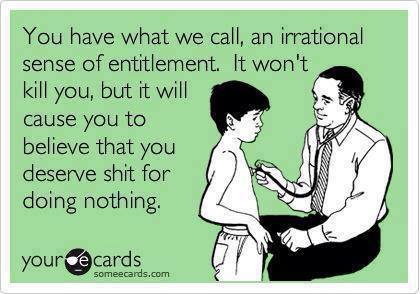
It’s complicated.
The debate over “Freedom of Speech” has been in the news lately, highlighted by ABC’s decision to suspend late-night talk show host Jimmy Kimmel for his comments regarding the murder of Charlie Kirk.
Many on the right (with the exception of a certain senator from Texas) applauded the decision by the network claiming his remarks were incendiary and went beyond the bounds of social norms.
The left meanwhile cried out the network was submitting to the cancel culture, taking away Kimmel’s freedom to say what he wanted and that his monologue was protected by the US Constitution.
The First Amendment to the United States Constitution says…
Congress shall make no law respecting an establishment of religion or prohibiting the free exercise thereof; or abridging the freedom of speech, or of the press; or the right of the people peaceably to assemble, and to petition the Government for a redress of grievances.
This doesn’t mean all speech is free because the government can place reasonable restrictions on speech that constitutes true threats, defamation, harassment, incitement to violence, or obscenity.
Like I said, it’s complicated. Now let’s try to define reasonable.
What got Kimmel in trouble was saying, among other things, was that Trump and his allies were “desperately trying to characterize this kid who murdered Charlie Kirk as anything other than one of them” and trying to “score political points from it”.
He also spoke about flags being flown at half-mast in honor of Kirk and mocked President Donald Trump’s reaction to the shooting.
Facing heat from the FCC and several affiliates (Nexstar Media and Sinclair), ABC suspended Kimmel saying in part…
Last Wednesday, we made the decision to suspend production on the show to avoid further inflaming a tense situation at an emotional moment for our country. It is a decision we made because we felt some of the comments were ill-timed and thus insensitive.
Many on the left condemned the move as censorship and a threat to free speech while President Trump welcomed Kimmel’s indefinite suspension as “great news for America”.
So, did those comments reasonably cross the line of being a threat, defamation, harassment, incitement to violence, or obscenity?
It’s even more complicated in today’s hyper social media world.
Brendan Carr, chair of broadcast regulator, the Federal Communications Commission (FCC), certainly thought so. Carr accused Kimmel of “the sickest conduct possible” and demanded an apology even offering a veiled threat saying, “these companies can find ways to change conduct and take action, frankly, on Kimmel, or there’s going to be additional work for the FCC ahead.”
Carr also thanked Nexstar Media “for doing the right thing” and went on to say he hoped other broadcasters would follow its lead (ironically, Nexstar Media is currently seeking FCC approval for its planned $6.2 billion merger with Tegna so there may be another agenda here).
The FCC has been known to revoke the broadcast license of media outlets from time to time. In April 1987, the FCC’s board recommended the cancellation of WBUZ-AM’s license to operate in Fredonia NY. The community had complained that the station’s owner refused to grant equal time to opposing views surrounding matters concerning public housing, local police, and a water fluoridation project as required under the Fairness Doctrine at that time.
Why do I use this example? Ironically, the station was licensed to operate where I went to college and where I held my first paid radio shift (but well before all this took place).
It gets even more complicated.
Another factor to consider in all this is that Kimmel is an employee of ABC and under contract to perform. Does an employer have the right to control/limit/censor what their employees say? What if Kimmel’s comments caused the network to lose money (the claim CBS has made about removing The Late Show with Steven Colbert)? Does the company and shareholders have no right to protect themselves?
Here in the Lone Star State, the Texas Education Agency is investigating more than 280 complaints against teachers who have been accused of making inappropriate comments online about Kirk’s death with several educators already being punished for allegedly doing so.
Freedom of speech applies to all levels of government, both federal and state, but does not apply to private entities like companies, which can regulate speech on their platforms or in their workplaces. Whether or not you consider educators to be state government employees is a whole other question.
United States Supreme Court Justice Potter Stewart famously said “I know it when I see it” in 1964 to describe why the material at issue in the Jacobellis vs. Ohio case was not obscene and therefore was protected speech that could not be censored.
So, if we use Stewart’s baseline to determine what is appropriate free speech and what isn’t, all we have to do is decide…who decides.
Like I said, it’s complicated.


